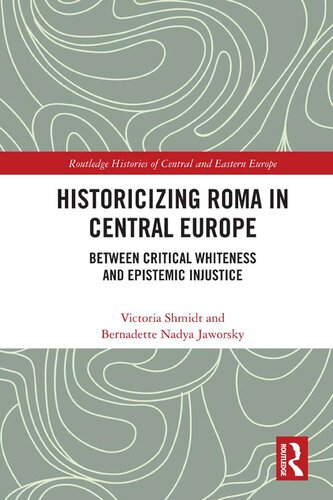

Most ebook files are in PDF format, so you can easily read them using various software such as Foxit Reader or directly on the Google Chrome browser.
Some ebook files are released by publishers in other formats such as .awz, .mobi, .epub, .fb2, etc. You may need to install specific software to read these formats on mobile/PC, such as Calibre.
Please read the tutorial at this link. https://ebooknice.com/page/post?id=faq
We offer FREE conversion to the popular formats you request; however, this may take some time. Therefore, right after payment, please email us, and we will try to provide the service as quickly as possible.
For some exceptional file formats or broken links (if any), please refrain from opening any disputes. Instead, email us first, and we will try to assist within a maximum of 6 hours.
EbookNice Team

Status:
Available5.0
22 reviewsIn Central Europe, limited success in revisiting the role of science in the segregation of Roma reverberates with the yet-unmet call for contextualizing the impact of ideas on everyday racism. This book attempts to interpret such a gap as a case of epistemic injustice. It underscores the historical role of ideas in race-making and provides analytical lenses for exploring cross-border transfers of whiteness in Central Europe. In the case of Roma, the scientific argument in favor of segregation continues to play an outstanding role due to a long-term focus on the limited educability of Roma. The authors trace the long-term interrelation between racializing Roma and the adaptation by Central European scholars of theories legitimizing segregation against those considered non-white, conceived as unable to become educated or "civilized." Along with legitimizing segregation, sterilization and even extermination, theorizing ineducability has laid the groundwork for negating the capacity of Roma as subjects of knowledge. Such negation has hindered practices of identity and quite literally prevented Roma in Central Europe from becoming who they are. This systematic epistemic injustice still echoes in contemporary attempts to historicize Roma in Central Europe. The authors critically investigate contemporary approaches to historicize Roma as reproducing whiteness and inevitably leading to various forms of epistemic injustice. The methodological approach herein conceptualizes critical whiteness as a practice of epistemic justice targeted at providing a sustainable platform for reflecting upon the impact of the past on the contemporary situation of Roma.